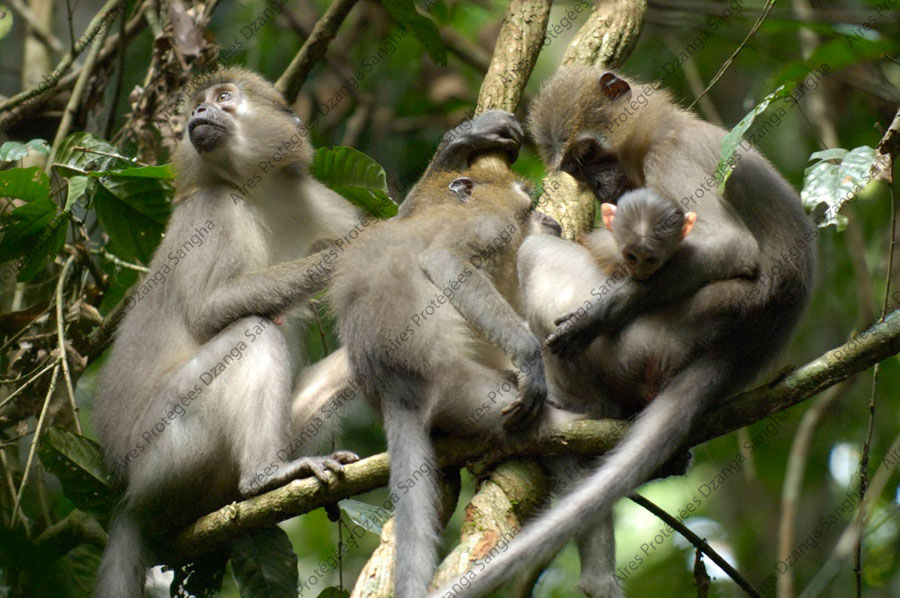Controversy trails Cross River Super Highway, Deep Seaport (1)


The much-awaited construction of Cross River state’s multimillion Naira super highway and deep seaport projects in South-South Nigeria, may be long in coming, following storms of petitions, protests and doubts currently trailing them.
When Prof Ben Ayade was sworn-in in 2015 as the elected governor of Cross River State, it would be recalled, he singled out the 12-lane, 260km (162 miles) super highway, with Wi-Fi Internet connectivity, which will link the proposed deep seaport from Bakassi on the shores of the Atlantic Ocean to the border with the neighbouring Benue state, as one of the significant projects he would execute.
Ayade, by this declaration, received wide applause from the people of the state; but neither the governor nor the people know what really was involved in the projects. Everything was shrouded in secrecy, including the cost of the project and its Environmental Impact Assessment (EIA) issue. However, being anxious to see its immediate take-off, the government was able to convince President Muhammed Buhari to come in person to do the ground-breaking ceremony.
It would be recalled that Mr. President, who was also elected in 2015, initially seemed supportive of the project, but on observing that the needful was not done, cancelled his proposed visit to break the ground for the commencement of the project. In fact, he discovered that an EIA for the project was not carried out.
Stakeholders saw the President’s action as very strong signal to remind everyone that the law cannot be taken for granted, even though Governor Ayade had made it clear that he wanted the President to flag off the construction of the project, but the outcry that it caused, made the President not to flag off the superhighway then.
However, once the road was diverted around the Park, this seems to have allayed the fears of the President, who eventually visited Cross River State to inaugurate the superhighway on the 20th October, 2015.
Sadly, few months after the ground-breaking ceremony, the state and the Federal Government had found themselves on a collision course, as there was no EIA to support it.
Right of way
The absence of the Environmental Impact Assessment drew protests from local activists and 15 international organisations, including the World Wildlife Fund (WWF), the World Conservation Society and Birdlife International. It was said that if the project was carried out, up to 180 communities will lose their lands and homes, as the superhighway will pass through their local areas. Conservationists believe the proposed highway will lead to the loss of a large portion of the last remaining rainforests in Nigeria, half of which are in Cross River state.
The project seeks to acquire 20.4km of land all along the superhighway as right-of-way without consultation with the communities.
Martins Egot, who runs Ekuri Initiative, a community-based body said, “Taken altogether, this project will take a quarter of the land in the state. It is a pure land grab – why ask for 20km as right-of-way when the right-of-way for federal expressways in Nigeria is 50 metres?” Egot wondered.
Egot’s organisation manages the Ekuri Forest, which lies along the route of the project. Rainforests in the state have large portions designated as protected areas, such as, the Cross River National Park, Cross River South Forest Reserve, the Afi River Forest and Afi Mountain Wildlife Sanctuary — all of which the activists say, lie within the right-of-way or very close to the superhighway. These protected areas are very rich biodiversity hotspots and home to endangered animal and plant species.
For example, 16 primate species have been recorded in the Cross River National Park, including common chimpanzees, drills, Cross River gorillas and the gray-checked Manga bey, already considered extinct in the area.
Altogether, record shows that 78% of the primate species in Nigeria are found within the park’s area. It also contains about 950 species of butterflies, 610 species of birds (including vulnerable species, such as, the gray parrot and unusual species such as, the olive long-tailed cuckoo; and the grey-throated tit-flycatcher as well as 42 species of snakes.
Conservationists, Non Governmental Organisations and scientific organisations have campaigned against the construction of the six-lane, 260-kilometer (162-mile) Cross River Super Highway, because, it cuts through Nigeria’s Cross River National Park, which provides important habitat for wildlife, including Red List species and subspecies such as forest elephants (Loxodonta cyclotis), drills (Mandrillus leucophaeus) and Nigeria-Cameroon chimpanzees (Pan troglodytes ellioti).
The acclaimed biodiversity hotspot also serves as one of the last refuges for the about 300 remaining Cross River gorilla (Gorilla gorilla Diehl). The new highway route has been moved to the fringes of the national park, according to a map produced by WCS.
The original route for the 160-mile superhighway, which included a 12-mile-wide buffer, would have been catastrophic for the Cross-River rainforest, demolishing some of the last-remaining habitat of the highly endangered Cross River gorilla.
The clearing of the rainforest caused numerous local and international outcries, causing environmentalists to petition the then minister of environment, Amina Mohammed, to invoke the EIA Act, a federal law that mandates a study on the likely effects of environmentally sensitive projects before they start, to stop the project. The minister, who used to be a special adviser to the United Nations Secretary-General, obliged, issuing a stop-work order in March pending the conclusion of the EIA process.
The draft EIA report however failed to account for the 20km right-of-way and could not provide financial justifications to show how it will be funded, earning it a ‘D’ grade from the Federal Ministry of Environment, which means that it needs to be redone in parts.
In the meantime, communities are mobilising and creating awareness amongst themselves to oppose the project.
Egot of Ekuri Initiative and chief Edwin Ogar, who also runs an environmental organisation, Wise Administration of Terrestrial Environment and Resources (WATER), were able to mobilise the Ekuri community to protest against the clearing of their forest, forcing the bulldozers that had arrived to leave.
The people of Ekuri live in Akampa Local Government Area of Cross River State, deep in the heart of one of Nigeria’s last surviving rainforests. Their forest is sandwiched by the Ukpon forest reserve to the north and Cross River National Park to the east and south and to the west by the Iko Esai community forest.
Which will destroy the ancestral lands and forests of the Ekuri people and thousands of others along the proposed 260 km route, continues.
According to the World Wildlife Fund, Cross River gorillas are critically endangered with only 200-300 left in the wild. So, why are we about to destroy their home? The World-Wide Fund for Nature and other NGOs have documented the fact that they harbour an enormous diversity of plant and animal species almost unmatched anywhere else in the world.
In recognition of this, the UK government invested millions of pounds into the Cross-River State Forestry Department in the 1990s. WWF also invested millions of pounds into the establishment of Cross River National Park over a period of 7 years. More recently, the UN established the UN-REDD programme in Nigeria with Cross River State as the first pilot state in which to establish structures to channel carbon credit funds from the world to reward the State for actions to protect these globally important forests.







